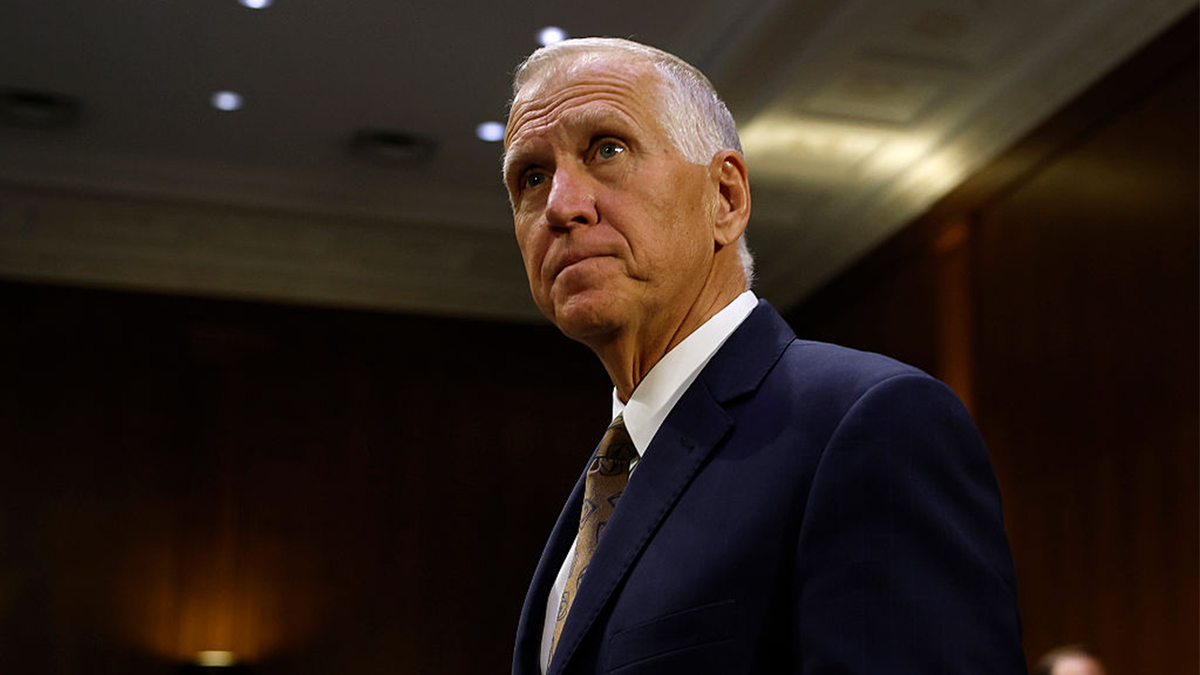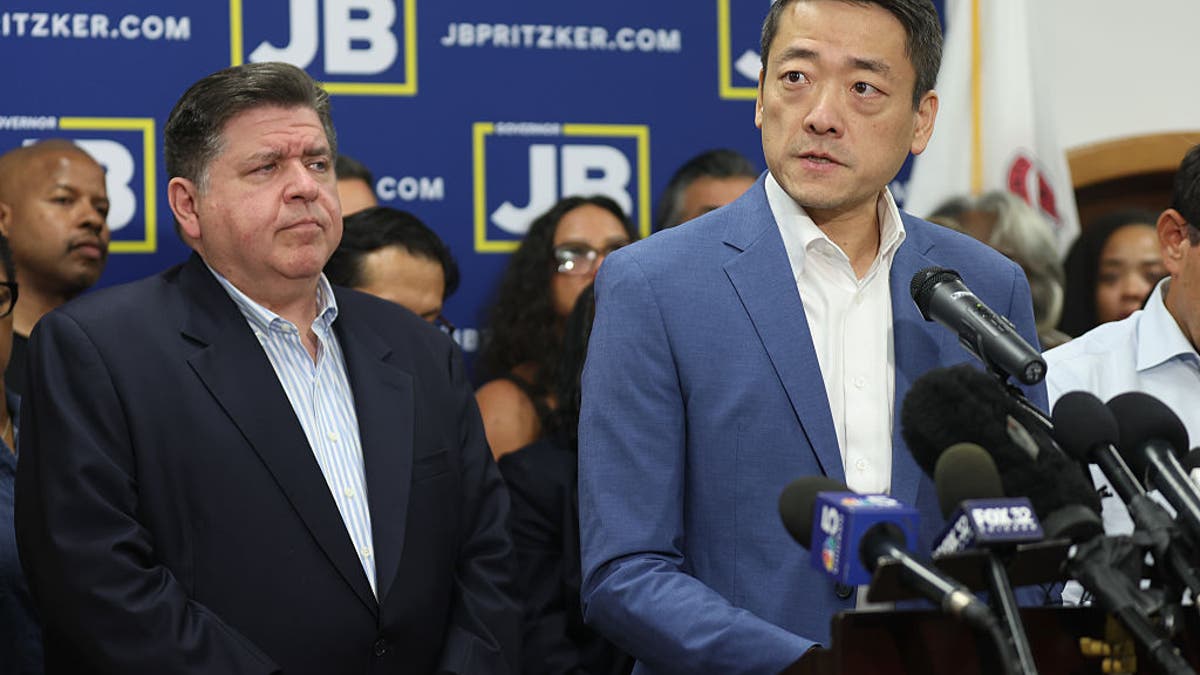INTERNACIONAL
La izquierda chilena define en primarias a su candidato presidencial con Jara emergiendo como favorita sobre Tohá

Los ocho partidos de izquierda que integran el Gobierno del presidente chileno Gabriel Boric definen este domingo al candidato del progresismo que enfrentará en las presidenciales de finales de año a una derecha y ultraderecha en auge según todos los sondeos.
Las urnas abrieron a las 08:00 hora local (12:00 GMT) con cuatro contendientes en la papeleta: dos ex ministras del gobierno de Boric y dos diputados, todos aspirando a representar al oficialismo de izquierda en los comicios generales de noviembre próximo.
Las candidatas con más posibilidades, según todas las encuestas, son Carolina Tohá, ex ministra de Interior de Boric y representante del Partido por la Democracia, el Partido Socialista, el Partido Liberal y el Partido Radical; y Jeannette Jara, la carta del Partido Comunista y Acción Humanista, quien también integró el Gobierno de Boric liderando la cartera de Trabajo.
Los otros contendientes son el diputado Gonzalo Winter, del Frente Amplio -el partido de Boric-, y el diputado Jaime Mulet, que representa a la Federación Regionalista Verde Social.

Más de 15 millones de personas están habilitadas para participar en esta elección, correspondientes a los inscritos en partidos del oficialismo e independientes. Los únicos electores que no pueden participar son aquellos militantes de los partidos de oposición.
“Chile tiene una larga tradición en materia de primarias desde el retorno de la democracia. Hay habilitados para votar 15,5 millones de personas y es importante recordar que pueden votar las personas independientes y los militantes de los partidos que participan en las primarias”, declaró el ministro del Interior, Álvaro Elizalde, a la prensa.
“Votar es esencial para que construyamos una patria común. Es un derecho y a la vez es un deber”, declaró Boric a periodistas este domingo, luego de votar en la ciudad de Punta Arenas, en el extremo sur del país, de donde es oriundo.
Solo el oficialismo optó por concurrir a las elecciones primarias previstas en la legislación, que son voluntarias y organizadas por el Servicio Electoral (Servel). Los otros sectores ya nominaron o designarán a sus candidatos en forma interna.
Las mesas de votación permanecerán abiertas hasta las 18:00 hora local (22:00 GMT), y el Servel estimó que tres horas después ya podría conocerse el ganador. Los centros de votación están distribuidos por todo el territorio nacional y se espera que el resultado se conozca rápidamente.

La campaña arrancó con Tohá como favorita, pero con el paso de las semanas se ha ido imponiendo Jara, lo que ha generado cierto nerviosismo en la socialdemocracia tradicional chilena, que gobernó durante dos décadas desde el retorno a la democracia.
Si finalmente se impone Jara, sería la primera vez desde el retorno a la democracia que un comunista se convierte en el candidato presidencial de toda la izquierda chilena, marcando un hito histórico en la política nacional.
Tohá, de 60 años, es cientista política y militante del centroizquierdista Partido por la Democracia. Los analistas destacan principalmente su vasta experiencia en política, ya que ha ejercido distintos cargos a lo largo de su vida como diputada, ministra y alcaldesa de Santiago, así como su perfil moderado.
Jara, de 51 años, es abogada e integrante del Partido Comunista. De ella, los expertos resaltan su carisma y su capacidad de negociación que demostró con la aprobación el pasado enero de la reforma de las pensiones, una de las grandes promesas de Boric al llegar al poder.
Winter, de 38 años, es la carta del Frente Amplio, el mismo partido de Boric, mientras que Mulet, de 61 años, milita en el minoritario partido Federación Regionalista Verde Social.
Los expertos aseguran que el escenario está muy abierto porque el voto es voluntario y hay desafección política y cansancio electoral en la sociedad chilena, que en los últimos años ha enfrentado numerosas elecciones, lo que introduce un factor de incertidumbre en los resultados.
El candidato del oficialismo que surja de estas primarias deberá enfrentar a los postulantes de oposición, quienes han liderado las encuestas en los últimos meses.

La ganadora se enfrentará a un conservadurismo que decidió no hacer primarias y que competirá directamente en la primera vuelta del 16 de noviembre.
Entre los candidatos de oposición ya confirmados figuran Evelyn Matthei, de Chile Vamos, la derecha tradicional; José Antonio Kast, el líder del ultraderechista Partido Republicano; y Johannes Kaiser, del Partido Nacional Libertario.
Los postulantes de otros sectores tienen plazo hasta el 18 de agosto para inscribirse ante el Servel, lo que podría ampliar el campo de candidatos para las elecciones generales.
La primera vuelta de las elecciones presidenciales se realizará el 16 de noviembre. En caso de que ninguno de los candidatos supere el 50% de los sufragios, los dos más votados deberán disputar un balotaje el 14 de diciembre.
Este proceso electoral marca un momento crucial para la izquierda chilena, que busca mantener el poder tras el mandato de Boric, quien termina su período en marzo de 2026.
El resultado será fundamental para determinar si la izquierda chilena mantendrá un perfil más moderado o dará un giro hacia posiciones más radicales, en un contexto donde las encuestas muestran un crecimiento de las opciones conservadoras y de ultraderecha en el país.
La participación ciudadana en estas primarias también será un indicador importante del nivel de compromiso político de los chilenos y del interés que genera la continuidad del proyecto progresista iniciado por Boric hace más de tres años.
(Con información de AFP y EFE)
políticos
INTERNACIONAL
Senate Republicans reveal dramatic dealmaking behind Trump’s $3.3T megabill passage

NEWYou can now listen to Fox News articles!
Senate Republicans left Washington this week to sell President Donald Trump’s «big, beautiful bill,» but the road to creating and passing the legislation began just over a year and a half ago.
Trump’s $3.3 trillion megabill, crammed with his legislative priorities on border security, defense and energy, was a product months in the making. And it was the marquee policy in the bill, which was to extend or make permanent many of the 2017 Tax Cuts and Jobs Act, that was the driving force behind Republicans’ desire to pass it.
But Senate Republicans have had little time to rest on their laurels and celebrate the bill’s passage, spending the month since Trump signed it advancing a $9 billion clawback package and trying to ram through Senate Democrats’ blockade of the president’s nominees.
SENATE PASSES TRUMP’S ‘BIG, BEAUTIFUL BILL’ AFTER MARATHON VOTE-A-RAMA
President Donald Trump boards Air Force One bound for Scotland on July 25, 2025, at Joint Base Andrews, Maryland. (Andrew Harnik/Getty Images)
The journey to pass the bill began well before Republicans had a trifecta in Washington in early 2024, when then-Senate Republican Conference Chair John Barrasso, R-Wyo., hosted a policy retreat with Senate Republicans to hash out what the GOP’s agenda could look like should the win out in November.
And months later, Trump visited with Senate Republicans to discuss the strategy they had been working on behind-the-scenes.
«With President Trump in the White House, we discussed how Republicans will get America back on track,» Barrasso said at the time. «That starts with helping families escape the pain of Democrat high prices, unleashing American energy, stopping Democrat tax increases, and securing the Southern Border. Republicans are united.»
The real, nitty-gritty work began in January where concepts were taken and fleshed out into legislation.
Senate Majority Leader John Thune, R-S.D., opted to leapfrog the House and move forward with the Senate’s own budget framework, which initially divided the «big, beautiful bill» into two chunks. That added pressure on Republicans in the lower chamber to coalesce behind a plan of their own.
For much of the earlier part of this year, however, the Senate was waiting on the House to fine-tune and pass their own version of the bill. Still, Thune and his leadership team, including Sen. Markwayne Mullin, R-Okla., worked to get a product from one side of the building to the other that the Senate GOP could work with.
TRUMP’S ‘BIG, BEAUTIFUL BILL’ FACES REPUBLICAN FAMILY FEUD AS SENATE REVEALS ITS FINAL TEXT

Reporters surround Senate Majority Leader John Thune as he moves between his office and the Senate Chamber at the U.S. Capitol on Aug. 1, 2025, in Washington. (Chip Somodevilla/Getty Images)
And when the bill made its way to the upper chamber in early June, the pressure was on to deliver a finished product to Trump by July 4, an artificial deadline used to help corral lawmakers into finishing work on the bill.
One of the major disagreements in the upper chamber before the bill ever hit the floor was over the nature of cuts to Medicaid, particularly aimed at the provider tax rate. The issue was eventually smoothed over through the creation of a $50 billion rural hospital fund, but lawmakers who sounded the alarm against it vowed to ensure that the changes to the provider would never take effect.
«I think it was a huge mistake,» Sen. Josh Hawley, R-Mo., said at the time. «I think this has been an unhappy episode here in Congress, this effort to cut Medicaid.»
«And I think, frankly, my party needs to do some soul-searching,» he continued. «If you want to be a working class party, you’ve got to get delivered for working class people. You cannot take away health care from working people.»
And when the bill did finally hit the floor for what would evolve into a multi-day affair of passing through procedural hurdles, Senate Minority Leader Chuck Schumer, D-N.Y., forcing the reading of the entire bill and a marathon vote-a-rama, Senate Republicans were still not entirely on board.
At first, a cohort of fiscal hawks led by Sen. Ron Johnson, R-Wis., and Sen. Rick Scott, R-Fla., appeared to not support the package — they wanted even deeper cuts to Medicaid by tweaking the percentage that the federal government pays for healthcare in states that opted into Obamacare, which they argued would have saved billions extra.
They were offered an amendment that eventually never came to the floor, but was enough for them to back down from tanking the bill. And their resistance began in the first of a handful of huddles inside Thune’s office outside the Senate floor.
TAX CUTS, WORK REQUIREMENTS AND ASYLUM FEES: HERE’S WHAT’S INSIDE THE SENATE’S VERSION OF TRUMP’S BILL

Republican Sen. Thom Tillis of North Carolina announced in June that he wouldn’t run for a third term in the Senate when he is up for re-election in 2026. (Getty Images)
Sen. Cynthia Lummis, R-Wyo., joined them for the closed-door conversations, and told Fox News Digital that while her vote was not contingent on getting the change added, she wanted to make the case for why it should be.
«It saved a lot of money,» she said. «It saved a lot of money, and so I was anxious to see us use the opportunity, since we were able to open up mandatory spending, use the opportunity to really save some money.»
And later on, in the wee hours of the night, Republicans were bouncing from Thune’s office to the Senate floor, hashing out deals as they went to get Sen. Lisa Murkowski, R-Alaska, to support the bill, knowing that Sens. Susan Collins, R-Maine, and Thom Tillis, R-N.C., could vote against it.
«Sometimes it’s got to be put on a clock, because at some point the argument has to come to an end,» Mullin told Fox News Digital. «And that’s why we had to do some of it on the floor. We had to, we had to force the hand.»
CLICK HERE TO GET THE FOX NEWS APP
And in the end, only three Republicans, Sens. Rand Paul of Kentucky, Collins and Tillis voted against the bill. From there it went to the House, where Republicans in the lower chamber had their own dramatic rally to pass the legislative behemoth.
And now, as Republicans scatter to their home states to sell the bill to their constituents, Tillis said that the «foundational» piece of information that lawmakers can share is that they averted a nationwide tax hike.
«The shame of the Medicaid provision is that the vast majority of the bill is supported,» he told Fox News Digital. «I think we have to remind them the problem with the tax bill is they’re not going to see a cut, but if we hadn’t done it, they would have seen a historic increase.»
«So we need to remind them of what we’re doing is continuing what we started, and the economy that we created, it was able to withstand COVID,» he continued. «And I firmly believe if we hadn’t passed it. We’d have been in a different posture.»
politics,senate,donald trump,republicans
INTERNACIONAL
Cómo el uso de la tecnología ayuda a la salud cognitiva en adultos mayores

El uso cotidiano de tecnología digital por parte de adultos mayores se asocia con una mejor salud cognitiva y un menor riesgo de demencia, según un análisis reciente de decenas de estudios científicos. Este hallazgo, publicado en Nature Human Behavior, desafía la percepción extendida de que la tecnología perjudica la mente, especialmente en un contexto donde los efectos negativos de los dispositivos electrónicos en jóvenes han generado preocupación. Sin embargo, la evidencia indica que, para quienes superan los 50 años, la tecnología puede convertirse en una aliada inesperada del cerebro.
El análisis, citado en un artículo por The New York Times, revisó 57 estudios con la participación de más de 411.000 personas mayores (edad promedio: 69 años) y encontró que cerca del 90% de las investigaciones reportaron un efecto protector de la tecnología digital sobre la función cognitiva. Los adultos mayores que utilizaban ordenadores, teléfonos inteligentes, internet o una combinación de estos dispositivos obtuvieron mejores resultados en pruebas cognitivas y presentaron tasas más bajas de deterioro mental o diagnóstico de demencia, en comparación con quienes evitaban o usaban menos la tecnología.
El tipo de tecnología empleada por este grupo abarca desde ordenadores personales y teléfonos inteligentes hasta el uso regular de internet. Los beneficios observados no se limitan a una sola función: el manejo de dispositivos digitales implica resolver problemas, adaptarse a actualizaciones constantes y aprender nuevas aplicaciones, lo que representa un desafío mental complejo. Además, la tecnología puede facilitar la vida diaria, como realizar compras, gestionar cuentas bancarias o mantener la comunicación con familiares y amigos, lo que contribuye a preservar habilidades funcionales y sociales.
Gran parte de la preocupación por la relación entre tecnología y cognición provino de estudios en niños y adolescentes, cuyos cerebros están en desarrollo.

Expertos en neurociencia y envejecimiento han aportado matices a estos resultados. Michael Scullin, neurocientífico y autor principal del análisis, señaló que “entre la generación pionera digital, el uso de tecnología cotidiana se ha asociado con menor riesgo de deterioro cognitivo y demencia”.
Por su parte, Murali Doraiswamy, director del Programa de Trastornos Neurocognitivos en la Universidad de Duke, consideró que estos hallazgos “son refrescantes y provocadores, y plantean una hipótesis que merece más investigación”.
Walter Boot, psicólogo especializado en envejecimiento, destacó que el estudio refleja el uso de tecnología en la vida real, donde los adultos mayores deben adaptarse a un entorno digital en constante cambio, lo que hace plausibles los resultados.
La experiencia de Wanda Woods, de 67 años, ilustra cómo la adaptación tecnológica puede integrarse en la vida cotidiana de los adultos mayores. Ella comenzó su relación con la tecnología en la adolescencia, cuando un curso de mecanografía la llevó a trabajar con procesadores de texto en la Agencia de Protección Ambiental. Décadas después, fundó un negocio de formación informática y actualmente es instructora en Senior Planet, una iniciativa en Denver que ayuda a personas mayores a familiarizarse con la tecnología.
Woods utiliza ordenadores, teléfonos inteligentes, relojes inteligentes y chatbots de inteligencia artificial para organizar viajes y actividades familiares, y afirma que mantenerse al día con la tecnología la mantiene activa y conectada: “Me mantiene informada también”.

La razón por la que la tecnología puede beneficiar al cerebro en la vejez radica en los desafíos que plantea. Según Scullin, estos dispositivos representan retos complejos que requieren perseverancia y aprendizaje continuo, lo que estimula procesos mentales asociados con la salud cognitiva. Incluso la necesidad de adaptarse a nuevas versiones de software o resolver problemas técnicos puede convertirse en un ejercicio mental positivo. Además, la tecnología fomenta la interacción social y puede compensar ciertas limitaciones de memoria mediante recordatorios y aplicaciones útiles.
No obstante, los especialistas advierten sobre los riesgos asociados al uso inadecuado o excesivo de la tecnología. Los fraudes en línea y las estafas afectan especialmente a los adultos mayores, quienes, aunque reportan menos incidentes que los jóvenes, suelen sufrir pérdidas económicas más elevadas. La desinformación y el aislamiento social por un uso excesivo de pantallas también representan amenazas. Doraiswamy subrayó que la tecnología no puede sustituir otras actividades beneficiosas para el cerebro, como el ejercicio físico o una alimentación saludable.
En las últimas décadas, la proporción de personas mayores que desarrollan demencia ha disminuido en Estados Unidos y varios países europeos, a pesar del aumento absoluto de casos debido al envejecimiento poblacional. Los investigadores atribuyen esta tendencia a factores como la reducción del tabaquismo, mayores niveles educativos y un mejor control de la presión arterial. Doraiswamy sugirió que la interacción con la tecnología podría estar contribuyendo a este patrón, aunque la relación exacta aún no se ha determinado.
El futuro de la relación entre tecnología y envejecimiento plantea nuevas preguntas. No está claro si los beneficios observados en la generación actual de adultos mayores se mantendrán en las próximas cohortes, que han crecido rodeadas de tecnología. Como señaló Boot, la tecnología evoluciona constantemente, por lo que el impacto sobre la salud cognitiva podría variar con el tiempo.
A lo largo de la historia, la llegada de nuevas tecnologías ha generado inquietud y escepticismo. Sin embargo, la experiencia muestra que, tras la alarma inicial, muchas innovaciones terminan aportando ventajas inesperadas, incluso para quienes más reticencia sentían al principio.
aged,call,computer,conference,conversation,couple,disabled,elderly,enjoying,family,female,grandfather,grandmother,handicap,handicapped,happy,home,internet,kitchen,laughing,male,man,mature,men,older,online,paralysed,paralyzed,people,person,phone,relaxed,retired,senior,seniors,sitting,smartphone,smiling,talking,technology,teleconference,video,video call,video chat,waving positive,webcam,wheelchair,white,wife,woman
INTERNACIONAL
WATCH: Texas state senator argues redistricting showdown could decide balance of power in future US Congress

NEWYou can now listen to Fox News articles!
GOP Texas state senator Mayes Middleton told Fox News Digital that the stakes couldn’t be higher when it comes to Republicans’ redistricting fight with Democrats in Texas, arguing that the effort to redraw the maps in Texas could «save America.»
Middleton pointed out that if the results of the 2026 mid-term elections lead to another razor-thin majority for Republicans, the Congress «will know» that the Texas redistricting bill was responsible for the GOP maintaining its power. Meanwhile, despite Democrats’ attempts to halt the GOP redistricting effort by fleeing the state, Middleton expressed little concern that these challenges would amount to anything.
«Literally, this redistricting bill could save this entire nation. This is why this fight is so important to me,» Middleton said. «I will fight with everything in me to make sure that this map becomes law, and we get those five more Republican seats … It could literally save America.»
GOV. GREG ABBOTT THREATENS TO REDISTRICT 8 SEATS FOR GOP IF DEM LAWMAKERS DON’T RETURN TO TEXAS
Texas GOP state senator, Mayes Middleton, spoke to Fox News Digital about the ongoing redistricting battle in his state. (Getty Images/Fox News)
Despite the stakes, according to Middleton, he did not express concern about Democrats’ efforts to challenge the Republican redistricting bill, which has included dozens of Texas House Democrats fleeing the state to prevent the legislature from being able to conduct official business.
He called their challenge «meritless,» pointing to litigation stemming from his home county of Galveston that found that «coalition districts» — districts formed by combining multiple minority groups to reach a majority — were in violation of the Voting Rights Act. As a result, Democrats cannot claim an obligation to create such districts to preserve minority voting power, Republicans argue.
«Before the Petteway case was decided, basically you could add together various minority groups to get above 50% and then, under [Democrats’] interpretation of the Voting Rights Act, they said that was a protected district,» Middleton explained. «And that actually began when Galveston County Commissioners Court redistricted, and the last Democrat in the Commissioners Court was drawn out of office, and they sued and said that was racist. But yet, not long after, maybe a month after, Harris County redistricted and drew out a Republican, and they said that was fine. So that shows you just the ridiculous hypocrisy of the left in this case.»
OBAMA LABELS TEXAS REDISTRICTING PUSH ‘A POWER GRAB THAT UNDERMINES OUR DEMOCRACY’

Texas has become a flashpoint for the debate over partisan gerrymandering amid a battle between Republicans and Democrats in the state over the former’s attempts to redraw congressional districts mid-way through the decade. (Getty Images)
Civil arrest warrants were issued by the Texas House Republican majority earlier this week in an effort to compel the absent Democrats to return, but they are only enforceable within state lines and do not lead to jail time, since the warrants are not criminal. Still, Texas Republican Attorney General Ken Paxton has called on a court in Illinois, where a large swath of the Texas House Democrats fled, to enforce the warrants against Democrats.
In addition to blocking Texas Republicans’ redistricting bill, the exodus of Texas Democrats is obstructing crucial legislation from making its way through the legislature, Middleton told Fox News Digital.

J.B. Pritzker, governor of Illinois, left, and State Representative Gene Wu, a Democrat from Texas, during a news conference at the Democratic Party of DuPage County office in Carol Stream, Illinois, US, on Sunday, Aug. 3, 2025. (Talia Sprague/Bloomberg via Getty Images)
CLICK HERE TO GET THE FOX NEWS APP
Middleton pointed to one bill being held up, Senate Bill 7, which aims to protect all-female spaces from being used by biological males who identify as transgender females. Others include a ban on taxpayer-funded lobbying, an election-crime enforcement bill and critical flood relief legislation.
«These are the conservative priorities that we were elected to get done. And the Democrats, of course, are looking for ways to block that are unlawful,» Middleton argued. «Frankly, they’re doing it in a way that will cause their office to be vacated if they don’t come back.»
texas,democratic party,midterm elections,republicans elections,politics

 POLITICA3 días ago
POLITICA3 días agoLa foto de Javier Milei con los candidatos de La Libertad Avanza en Buenos Aires: “Kirchnerismo nunca más”

 POLITICA2 días ago
POLITICA2 días agoMilei grabará la cadena nacional con un mensaje sobre los vetos orientado a “amurallar el déficit cero y la política monetaria”

 POLITICA2 días ago
POLITICA2 días agoLilia Lemoine reaccionó a las declaraciones de Diana Mondino y dijo que “atentó” contra el Presidente: “Está armado”




































